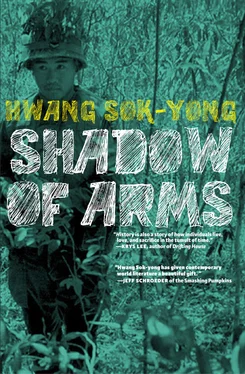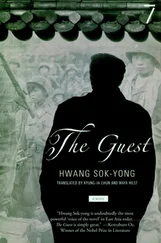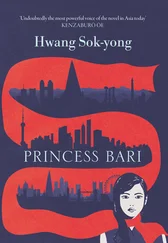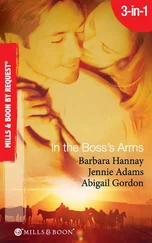The Logistics Battalion truck convoy had emerged from brigade headquarters after loading supplies and was just past the Dong Dao crossroads, approaching the Y-junction. The Americans had given this intersection the nickname “Crap Crossing.” Human excrement collected in downtown Da Nang had been poured as fertilizer onto the vast, cactus-studded fields around the junction. Much of the stinking garbage from the city also found its way to the same site for dumping. The right fork of the junction led downtown, the left to the supply warehouse, and the stem of the “Y” was Route 1. In the center of the junction there was a platform that served as a traffic control box as well as a checkpoint for the Vietnamese Quartermaster Corps to conduct their inspections of the traffic passing by.
Yong Kyu had contacted Master Sergeant Yun and made arrangements for the use of a recreation center vehicle. He was supposed to give the driver twenty or thirty dollars as pocket money in the name of temporary duty allowance. It was a good opportunity for the rec center to do a little favor for CID. Yong Kyu watched the lead Jeep in the convoy make a left turn at the junction, followed by an armed escort vehicle. A cloud of red dust soon enveloped them. About twenty empty trucks rattled by, another armored personnel carrier trailing behind them.
“Get in line with them!”
The driver gunned the engine and pulled in behind the last vehicle. Maintaining constant speed and spacing, the convoy rumbled along Route 1, past the campside villages and small infantry units marching along the road. They entered the east gate of the Turen supply warehouse. Used oil had been poured over the dust, making the surface of the road look like asphalt. The sentries guarding the gate were busy controlling the heavy traffic. A lone vehicle entering the gate would be rigorously inspected, but by tagging along behind a scheduled convoy it could usually pass right in without being checked at all.
At Turen, the Allied Forces’ supply transports had priority over all other vehicles. The east gate was off-limits to Vietnamese vehicles, which had to go through tougher inspection procedures for access at the south gate near the ammunition dump. Once inside the warehouse, the transport trucks were sent to docks according to the supplies being loaded. Yong Kyu knew the number of the food warehouse dock and gave it to the driver.
The procedure for delivering supplies was simple enough: the officer in command submits a requisition form issued by the supply division of brigade headquarters to the warehouse supply office, which issues a delivery order. Upon receiving this document, the administrative officer at the loading dock loads the indicated quantity of goods and both parties sign off on the requisition receipt. Combat supplies such as ammunition could be requisitioned almost without limit, but other items had been allocated in advance according to ration standards and estimates of normal daily consumption for relevant units. Even so, supplies were always abundant and the warehouses always overflowing.
Some days earlier, Yong Kyu had visited Turen in his Jeep. He had fostered an acquaintance with a certain corporal on the administrative staff at the B-ration warehouse. Yong Kyu knew from the corporal’s clipboard that he was a section chief. His clipboard held a requisition receipt ledger — once any given number of pallets had been loaded, the corporal would do a count and then sign the receipt along with the driver of the truck, then he would tear off the top copy and hand it over, keeping the carbon copy beneath to submit to his superior for inventory control.
This American corporal was a typical white with brown hair and lots of freckles. It wasn’t easy for Yong Kyu to make deals with Blacks. If the counterpart in a transaction was a black soldier, there were two things to watch out for: he might turn out to be unreliable, and also there could be a breakdown in cooperation on the other side; if the senior American was black, white soldiers often refused to join in on the deal.
The soldiers in the convoy parked their vehicles along the docks and headed off for the mess hall. While they were having lunch, the documents would be processed and the loading would commence in the early afternoon. Yong Kyu walked over toward the warehouse. Each block unit of the warehouse contained twenty warehouses, enormous corrugated metal Quonsets lined up in straight rows, each the size of an auditorium. Above each dock door was posted the kind and quantity of the goods stored inside. Forklifts were busy moving back and forth, and container trucks were constantly going in and out from the offloading docks on the other side of the warehouses. On the piers in front of the Quonsets, American soldiers in running shirts or stripped to the waist were breaking out cartons or jockeying packages inside with pallet jacks.
Yong Kyu loitered about looking for the corporal. Nobody paid him any attention. His uniform was exactly like their own, except that his sunglasses and openly displayed pistol made them take him for an officer. At last Yong Kyu spotted the corporal sitting at a desk inside one of the Quonsets. He was in a sleeveless shirt and drinking a Coke.
“How are you? Hot out.”
The corporal threw a quick glance his way. “Who are you?”
Yong Kyu tapped him on the shoulder. “I’m Sergeant Ahn, forgot me already? I was here two days ago.”
The corporal whistled, shaking his head. “Hey, that whiskey you laid on me was a real hit. The guys in our barracks got loaded.”
On his last visit Yong Kyu had given him three bottles of Johnnie Walker Black Label. One right word to the soldier in charge of requisitions would easily get you three boxes of coffee for free. But Yong Kyu had purposely given him whiskey, which was forbidden to soldiers below the rank of sergeant.
“Thanks for the coffee you gave me last time, my friends said it ought to be enough to last for a few years.”
The corporal got up and went over to the icebox in the corner. “Care for a cold drink?”
“No, thanks. I’m all right.”
“How about a beer?”
“I’m on duty.”
Nevertheless the corporal came back over with a can of beer.
“Officers? My ass. Don’t worry, fighting the heat is also a war, y’know.”
Yong Kyu lounged on the desk, stretching his legs side by side with the corporal.
“You’re not a career soldier, huh?”
“Nope, they dragged me out here. My motorcycle is rusting back home when I should be out riding flat track races. Well, only six months left in my hitch now.”
“Corporal, I only know your rank. What’s your name?”
“Leonardo, but they just call me Leon. I’m from Chicago. You know Chicago? A big city.”
“Yes, I’ve heard of it, Leon. Your name sounds Italian.”
“Same as the old man who painted the Mona Lisa. My grandfather emigrated to America. I’ve never been to Italy.”
“I like it.”
“Like what?”
“The Italian name. It goes with Chicago. We hear lots of stories about the gangsters, from the movies.”
“We’ve got one in the family. A Mafia man.”
Yong Kyu crushed the empty can and tossed it over the desk into the wastebasket. “How’s the duty going?”
“Here?” Leon stuck his tongue halfway out.
“I’m sick and tired of it. I’d rather be in a combat unit. Time passes too slowly here.”
“Do you know why I came to Vietnam?”
“No. Hell, I don’t even know why I came here. Shit, OK, why did you come?”
Yong Kyu removed his sunglasses.
“I came because you people called. That’s why.”
“I didn’t call you. I got drunk one weekend, and when I woke up on Monday I found an enlistment notice in my mailbox. So off I go to basic training.”
Читать дальше












